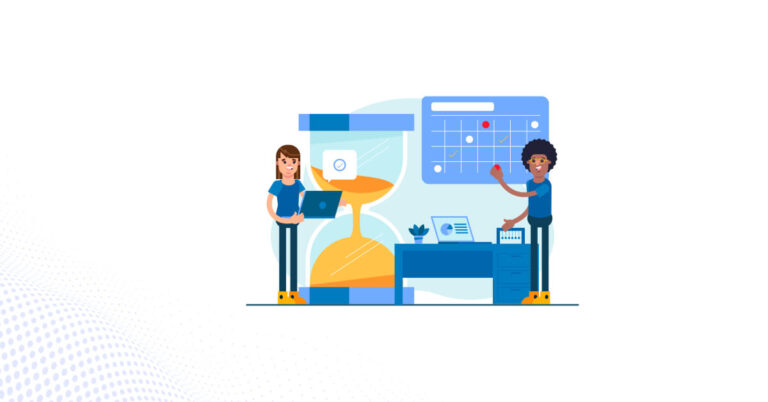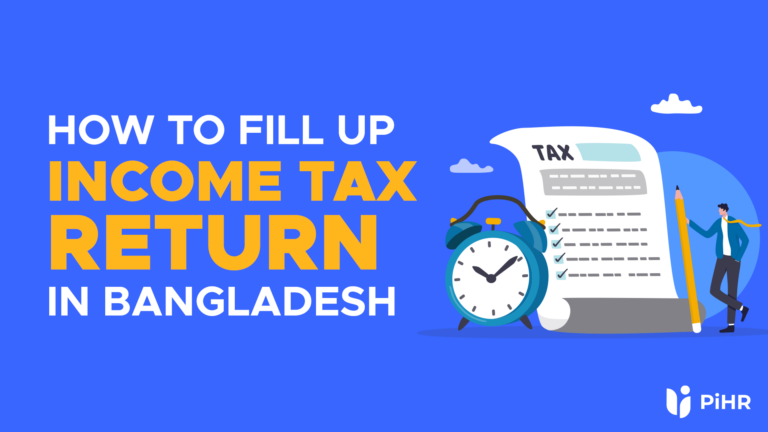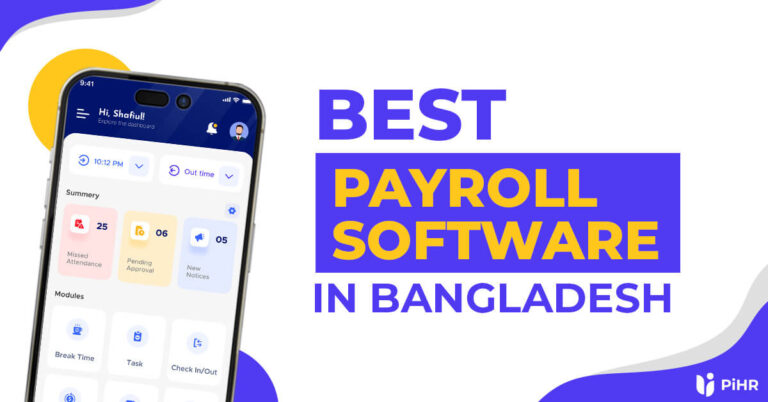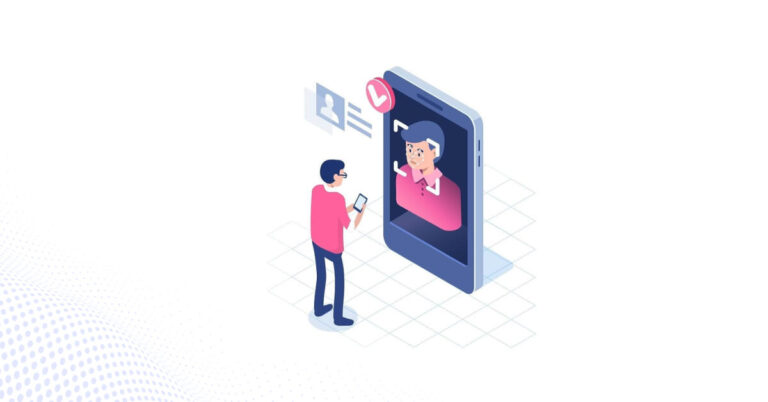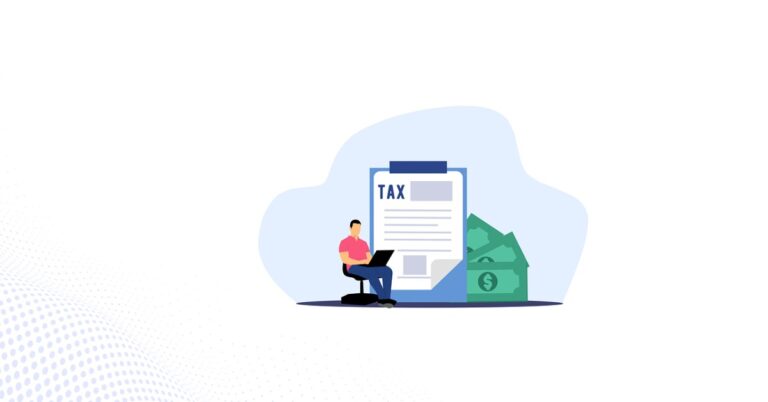Every HR department should use software that matches the firm’s unique demands while remaining cost-effective. There is no such thing as a general “best HR software” on the market as every business is different.
The best way to choose the ideal HR software is to understand the needs of the employees. Consequently, you’d be able to set the HR software goals. A single person cannot perform this arduous task.
Some steps the team can incorporate are hosting a brainstorming session and asking HR employees for their ideas. You can even communicate with members from other departments to understand their grievances about the HR setup.
This article contains everything you need to know about HR software and how to choose the ideal one for your company.
What Is HR Software?
Organizations deploy HR software to run several typical HR activities. These include onboarding and recruiting, payroll, benefits, training, attendance and time, employee performance, and other business needs.
An integrated HRIS can enhance efficiency and organization in your company. In this article, we’ll go over the most critical considerations when selecting HR software.
Moreover, we’ll also discuss the features to ensure the smooth execution of HR activities and fulfill your firm’s talent requirements.
HRIS Selection Process
Employ a strategy for evaluating HR tools: Determine the company’s most pressing obstacles in terms of HR tools. Recognize the firm’s requirements and objectives for adopting new technology.
Make a list of the HR software demands for your company: For an HR software system, make a list of what’s crucial to the company. The criteria should address both technological and non-technical aspects, like the ability to meet global compliance obligations.
Make a list of potential merchants: To build a list of potential vendors, use several research approaches, including reports and speaking with other client organizations. Then, choose the best five to ten vendors to contact for further information.
Create a request for proposal (RFP) to send to the vendors on your shortlist: The RFP must be clear and succinct. It should contain information about your company, the task, the response submission criteria, the timetable, and the needed scope. There should also be a vendor questionnaire.
Form a group to assess the product: A cross-disciplinary council of consumers comprising finance, IT, and HR representatives must be there. Additionally, staff members and managers who may engage with the tool regularly must test the product.
Check demos: The easiest approach to see features and modules is to watch a demo. To get the most out of the demos, we have a piece of advice. Make sure to request the vendor to design the demos around real-world use instances from your company.
Read case studies: Look for client anecdotes that can shed light on adoption and deployment issues. Request references from possible vendors who can directly respond to questions.
What To Look For In HR Software
You need not rush to decide as there are so many HR software solutions available today. Every platform is made of several modules that conduct various functions.
The list consists of some of the most common attributes that will impact your ultimate decision:
Benefits Administration
Select HR software having built-in benefits modules to handle your employees’ 401k retirement savings plans, health benefits, or any other benefits you offer.
Performance Reviews
This function reduces paperwork and offers a better way to track an employee’s performance. HR analysts may construct a growth plan for each employee and track their progress over the year.
Applicant Tracking System
This function is only useful for companies that employ regularly. An ATS, or “applicant tracking system,” automates resume screening as well as the job posting process.
Payroll
It is among the most crucial characteristics. Payroll features assist you in keeping track of your employee’s wages, penalties, premiums, and bonuses.
Scheduling
This function is critical if you operate in a sector where the majority of employees enjoy flexible schedules. Scheduling options will assist your firm in creating the most efficient schedules possible.
Multi-Users
HR software for large companies must ensure that more than one people can use it. Various platforms only allow a certain amount of people to utilize them.
Time Off Tracking
This technology makes it simple for staff to obtain time off. The system automatically tracks sick days and vacations.
Phone Support/Live Chat
It’s usual for HR department staff to have some challenges using new software. As a result, they’ll need to get in touch with a service provider. It would be simple to resolve concerns quickly if the vendor maintains a 24/7 help centre.
Intuitive Interface
Nobody likes to waste time figuring out how to utilize a new program. A user-friendly design makes it easy for new hires to grasp the fundamentals of their jobs in a short amount of time.
Scalability
If you anticipate your company to expand, be certain the system can handle the additional burden. Or, you’ll have to alter HR software to keep pace with the fast rate of progress.
Cloud-Based HR Software
There’s no need to waste money and time on “on-premise solutions” if your firm is modest. With fewer resources, SaaS HR can execute all of the same functions.
Tutorials or Training
If your firm wishes to deploy HR software substantially different from what it currently uses, the prospective vendor must arrange for staff training. They can then understand the intricacies of each feature so that they don’t run into any issues while using it.
“HR software is an investment in the future of your company,” says Pat Fredshaw, HR generalist at EssaySupply. If you learn that your selected provider has had issues with cybersecurity or cannot provide proper training to other customers, you must look for another supplier.
Cybersecurity
The HR software must safeguard company and employee data against cyber-attacks. Otherwise, your company as a whole and your staff as individuals would be jeopardized.
To Wrap It Up
If you’re serious about finding the best HR software for your business, you need to spend more than just a few days looking for the best solutions. To identify a solution that properly matches your corporate goals and capabilities, you must first comprehend them.
The IT world evolves daily. New solutions emerge on the market. Keep an eye on recent trends and investigate new developments in the HR software industry. In this way, you will be able to figure out what will help your organization the best.
On the other hand, HR system selection won’t be as hard as you might think. We hope this article helped you get the answers you were looking for.






